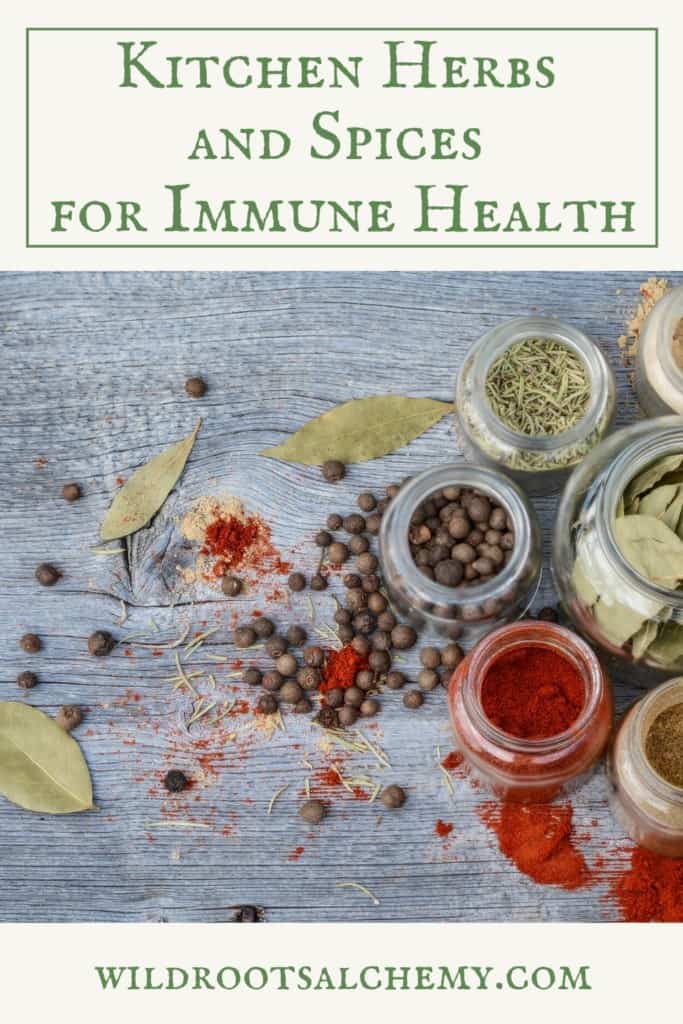
As we all stay home to prevent the spread of a contagious virus, the health of our immune system is an important focus for many. One of the keys of preventing illnesses lies in promoting the health of our own innate immunity.
Our innate immune system is an immediate non-specific response towards any foreign pathogen, as opposed to our adaptive immune system which relies on its ‘memory’ of previous infections. Our innate immune response protects us from infectious agents like viruses and bacteria. It is made up of physical barriers (like our skin and the mucous membranes that line our respiratory and gastrointestinal tracts); secretions like mucus, saliva, tears, and stomach acid; and certain types of white blood cells.
Many herbs act as immune modulators, meaning that they can help regulate or balance certain aspects of the immune system, thereby making our bodies more efficient at preventing infections. They can do this through a number of different mechanisms: stimulating certain white blood cells or cytokines while suppressing others, strengthening our innate immune defenses (including specific enzymes and proteins), or acting on the neuroendocrine system which directly impacts the health of the immune system.
Do you want to know one of the greatest things about supporting your immune system with herbs? You’ll find many of these immune-modulating herbs hanging out in your kitchen spice rack! No need to trek to your local herb store or track any of them down online.
So let’s start talking about some kitchen herbs!
Kitchen Herbs for Immune Support
Thyme
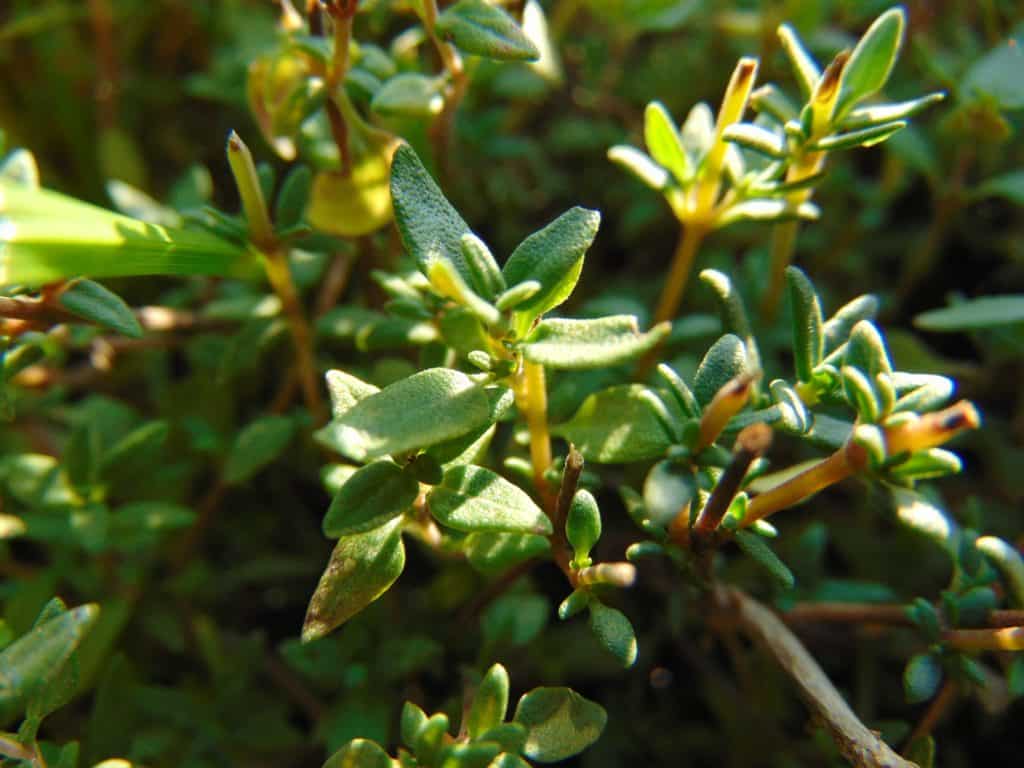
Thyme is a warming, pungent herb. Like many other immune-supportive herbs, thyme contains volatile oils that warm the body, promoting circulation and strengthening the immune system.
If one does become sick with a respiratory illness, thyme is a great herbal ally for clearing out mucus and congestion. Thyme also soothes coughs and sore throats if due to cold, damp, and stagnant conditions, as seen in most cold and flu-like illnesses.
For sore throats, consider a gargle made with thyme or a hot herbal tea infused with the dried herb. The tea is also useful for coughs and congestion. To soothe and help clear the nasal and respiratory passageways, add dried thyme to steam inhalations.
Note: I prefer adding the dried herb to steam inhalations rather than the essential oil, as the whole herb is just as effective, less costly, less prone to adverse effects, and more environmentally sustainable. (And on that note, please never take essential oils internally!)
Rosemary
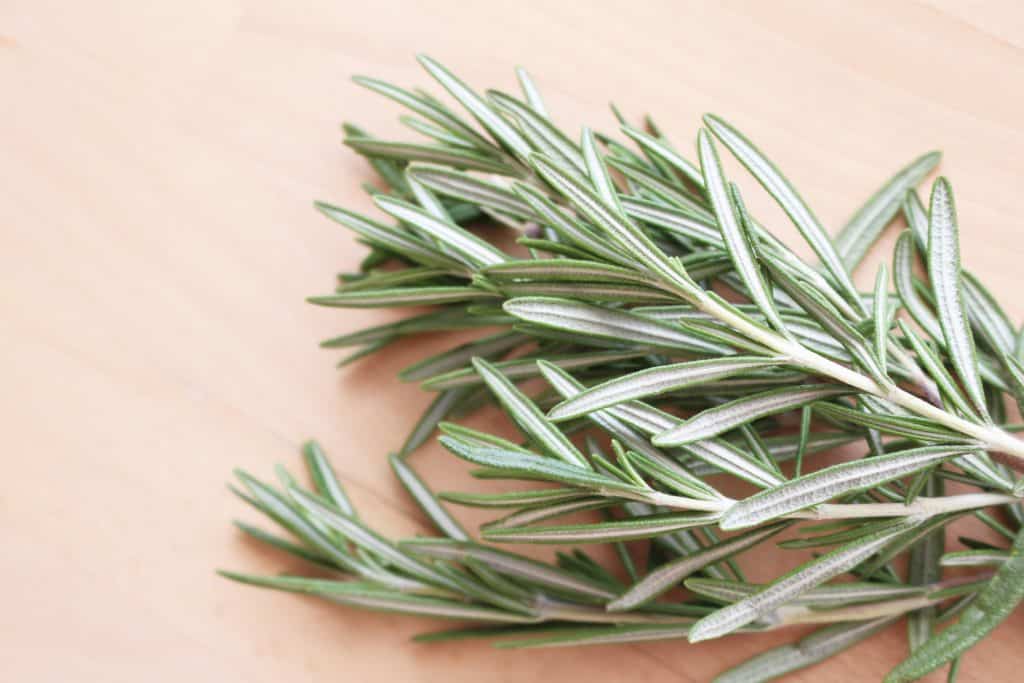
Rosemary is a member of the mint family, along with thyme, oregano, sage, and lemon balm. It is a pungent, aromatic herb that promotes circulation, warming up the lungs and easing congestion. Several studies have shown that different extracts of rosemary exhibit immunomodulatory effects.
Ways to enlist the help of rosemary:
- Add dried rosemary to a steam inhalation to clear out nasal passageways and relieve dry respiratory mucosa
- Add rosemary—along with other similar spices like thyme and sage—to your main dish or roasted vegetables
- Rosemary, lemon, and garlic are a fantastic addition to potatoes (either mashed or roasted whole) as well as artichokes (fresh or canned)
Sage
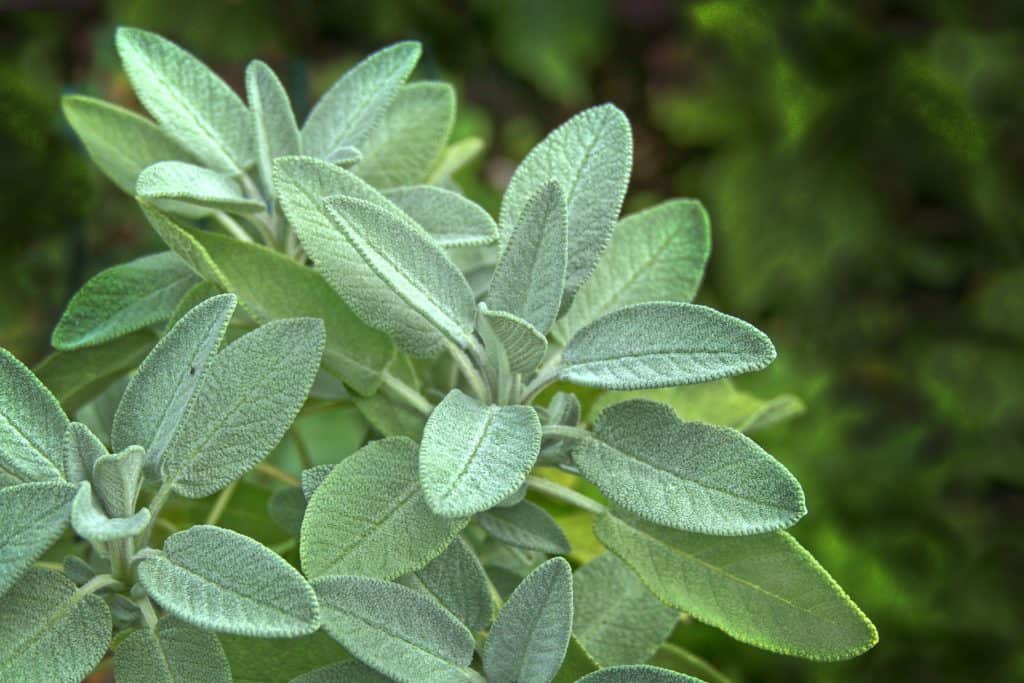
Like rosemary and thyme, sage is an aromatic, pungent herb. It is considered a blood mover, meaning that it stimulates circulation which then helps strengthen immune defenses.
Also similar to rosemary, sage is known to boost mood and cognition. It can be useful for those times when you feel a little down or lethargic, as can happen when you’re obligated to stay at home. Boosting your mood also enhances your immune system!
Sage is a wonderful remedy for the symptoms of colds and flus. It can ease the discomfort of sore throats. As a mild diaphoretic, sage can help alleviate fevers and promote warmth if you experience chills.
How to work with sage’s medicine:
- Steam inhalations with sage, rosemary, and thyme are effective at alleviating nasal and sinus congestion and soothing a dry, irritated respiratory tract
- Make some simple sage honey and add it to hot water or tea
- Make an herbal infusion with one teaspoon of dried sage and one cup of hot water, steep for 5 minutes before drinking
- Sage goes well with squash and apples
Oregano
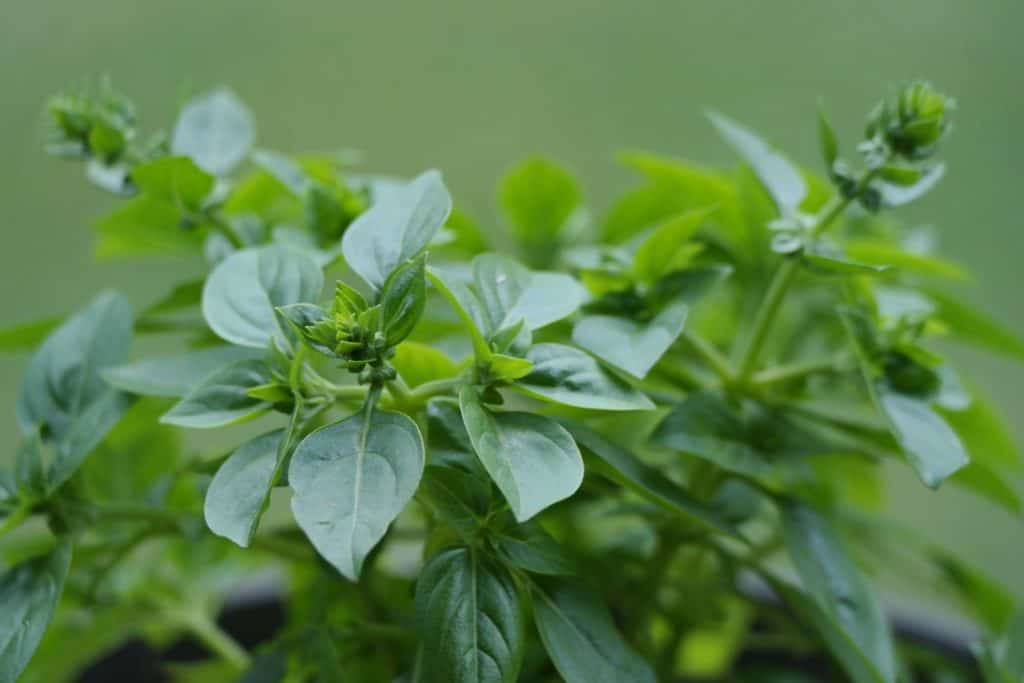
Oregano is an aromatic herb with similar properties to rosemary and thyme. It modulates inflammation and supports respiratory health.
Oregano is famous for being the prized spice in the pizza world. Commonly found in Italian and Mediterranean dishes, oregano gives a bold taste to many recipes while boosting your food’s medicinal properties!
Here are some ways to enjoy oregano:
- Infuse dried oregano in olive oil and drizzle over your meals
- Enliven your vegetable soups with oregano, using whatever veggies you happen to have on hand
- Add oregano to pestos and pastas
Garlic
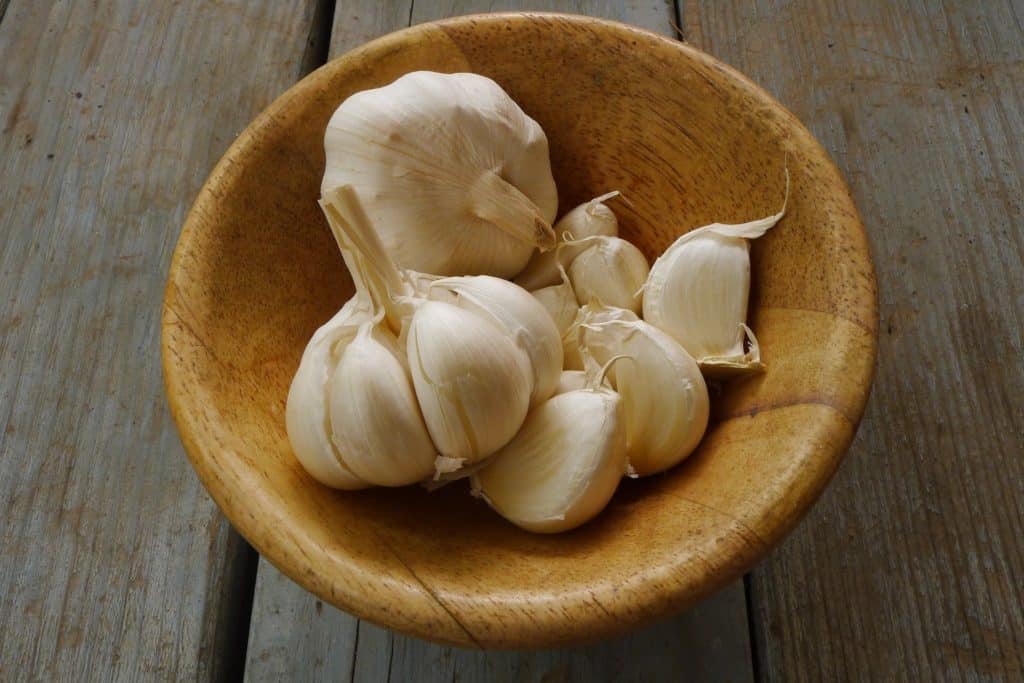
There are a growing number of studies indicating that garlic possesses immunomodulatory capabilities. As a pungent herb, it stimulates circulation and warms the body.
Garlic’s medicine is best added to your food, rather than taken alone or in supplement form. Crush or chop the garlic and then allow it to sit at room temperature for about 10 minutes to optimize its health benefits before adding it to your meals.
Garlic is a key ingredient in the popular home remedy “fire cider”—a pungent, warming herbal concoction containing stimulating herbs like garlic, onion, horseradish, and peppers. Fire cider is a well-known herbal remedy for immune support during cold and flu season. Take one to two tablespoons daily for immune health. You can drink the fire cider straight, avoiding contact with your teeth and drinking water immediately after, or you can mix it with water before drinking. Fire cider also makes a great salad dressing or marinade!
Here are some fire cider recipes:
- Herbal Academy’s fire cider recipe
- Rosemary Gladstar’s fire cider recipe
- Mountain Rose Herbs’ fire cider recipes
Turmeric
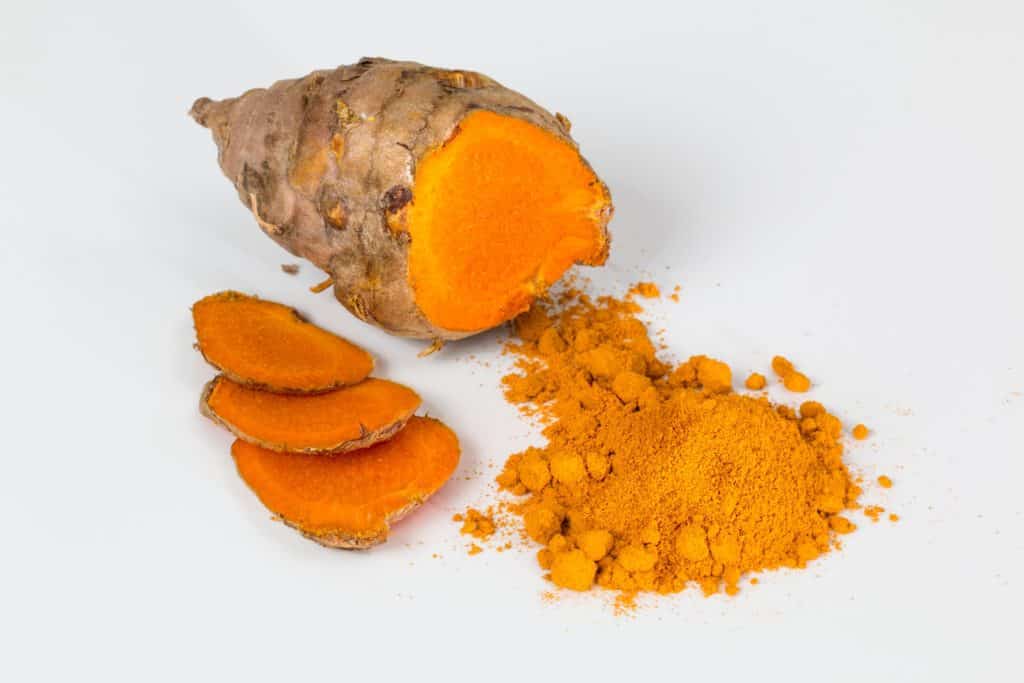
Turmeric is perhaps best known for its ability to regulate inflammation and pain. It’s also famous for its bright orange color. Turmeric frequents curry recipes and is commonly used to make a delicious drink called “golden milk.”
As a warming remedy, turmeric pairs well with ginger, cinnamon, and other chai spices (cloves, cardamom, nutmeg, black pepper). I like this golden milk paste recipe from Minimalist Baker. If you happen to have Ashwagandha on hand, I like to add about a tablespoon or two of Ashwagandha powder to the paste to also support the hormonal system.
Cinnamon
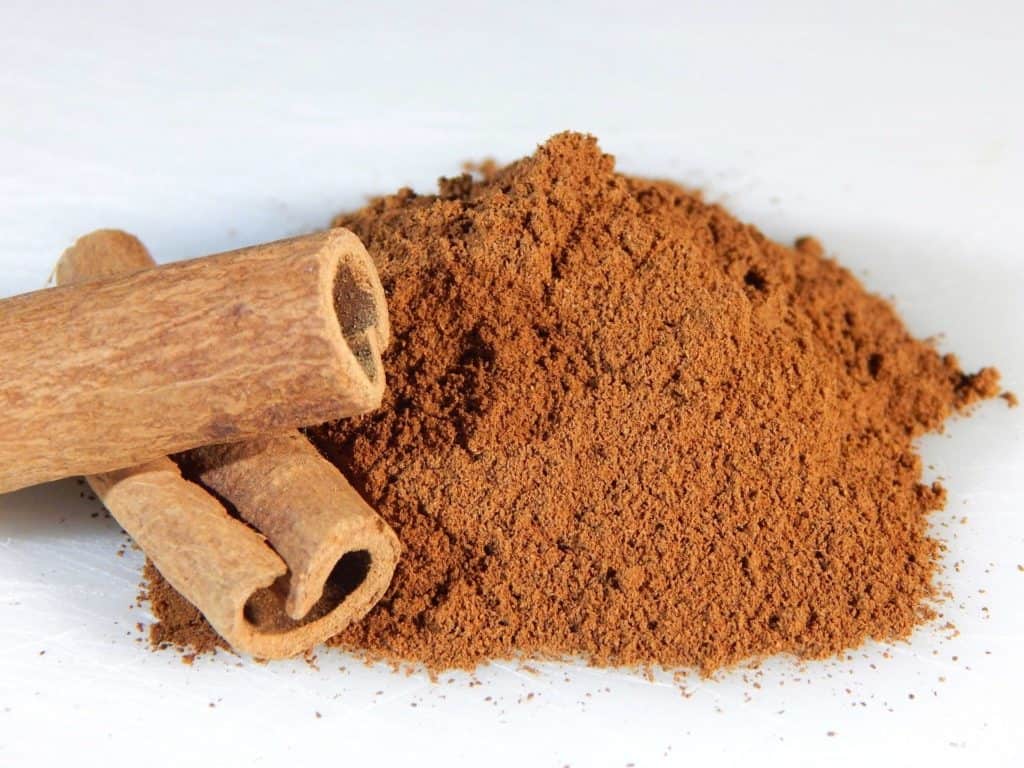
Cinnamon is another immunomodulatory herb that warms the body and promotes healthy circulation. It is a favorite spice among chai drinkers and adds an aromatic taste to all sorts of food and drink recipes.
Here’s how to your immune system with cinnamon:
- Chai! Chai spices vary but typically include cinnamon, ginger, clove, cardamom, nutmeg, and black pepper. There are countless ways to enjoy chai spices: chai made with black tea, non-caffeinated herbal chai, chai-spiced energy balls, chai-spiced nuts–there are no limits to cinnamon-spiced foods and drinks!
- Cinnamon combines well with ginger, lemon, and honey to make a warming and immune-supportive tea
- Add cinnamon to some of your pantry staples, like homemade cinnamon almond butter
- Boil cinnamon and orange peels to make your home smell amazing! It also helps freshen and cleanse the air. You can also make a quick and healthy, yet super tasty, dessert by baking apples along with cinnamon and orange peels.
Ginger
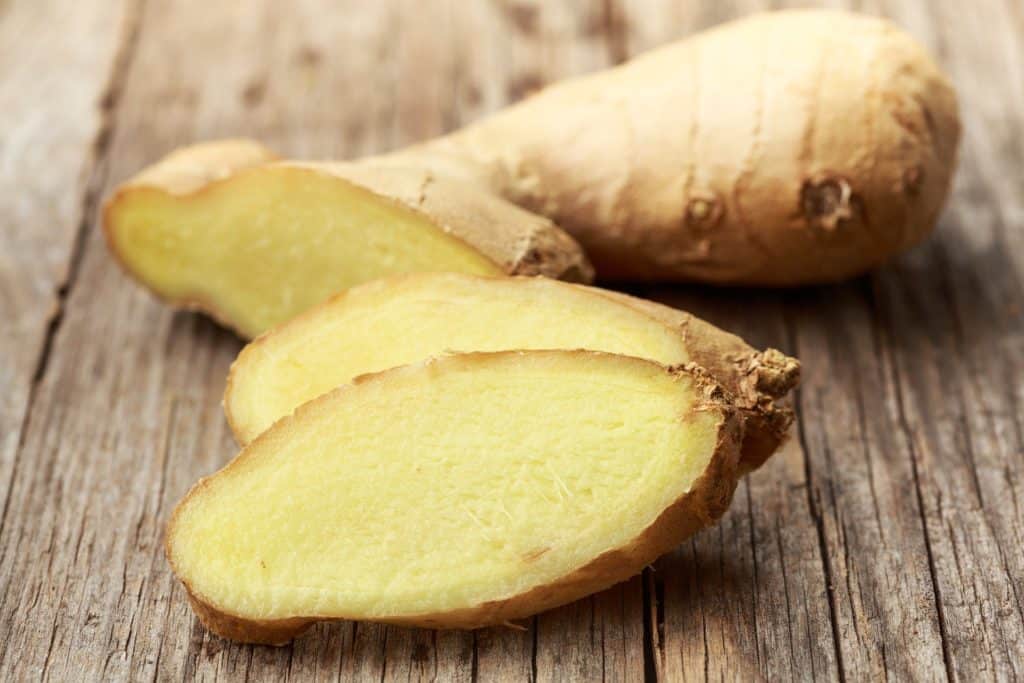
Ginger is an incredibly warming remedy. It has a long history of use during cold and flu season as an immune-supporting herb.
Ginger is also useful for nausea and digestive upset. As a diaphoretic, ginger warms the body and promotes sweating, which can help alleviate fevers and chills.
Here are some of my favorite ways to use ginger in the kitchen:
- Chai food and drink recipes (see all the recipe links under “cinnamon” above)
- Ginger, lemon, and honey tea is a great way to support immune function in order to help deter illnesses, as well as support the body during an acute illness. To make this tea, chop or grate about a teaspoon of ginger and add one cup of boiling water. Let it steep for about 5 minutes, then strain out the ginger if desired. Add the juice of half a lemon and a small spoonful of honey to taste. Drink a few cups throughout the day. Feel free to add turmeric, orange peel, mint, cinnamon, or other chai spices to the tea to enhance its benefits.
- Make a stir fry with lots of garlic and ginger
- I am a big fan of congee for breakfast–it’s such an easy and delicious meal!
Cayenne
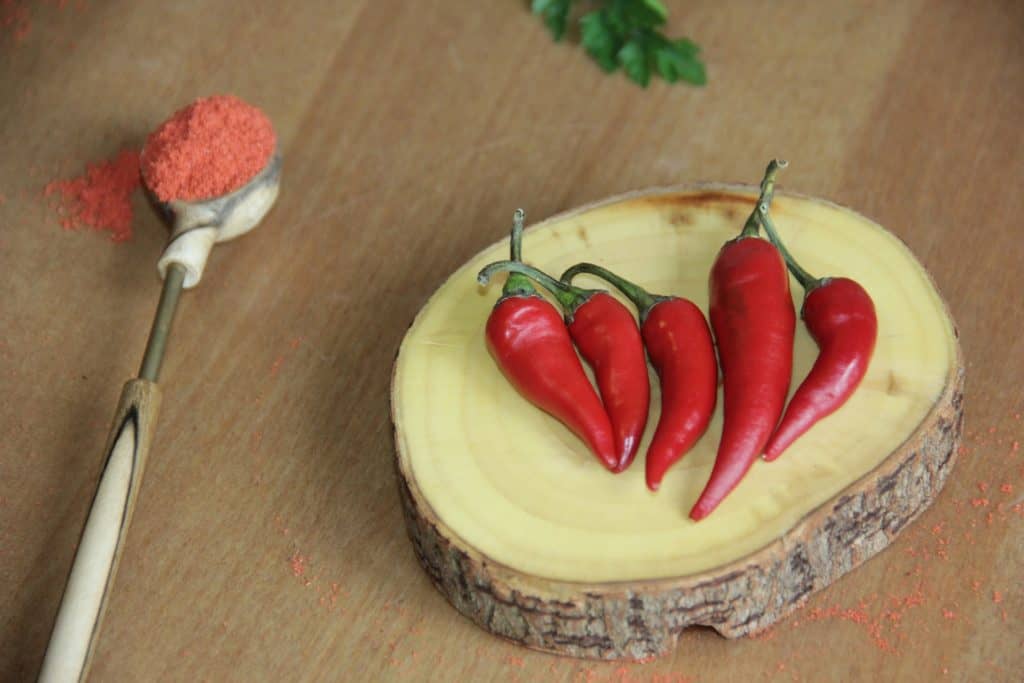
Cayenne pepper is the quintessential pungent herb. It is very heating, stimulating, and diffusive. It is well-known as a circulatory stimulant, promoting circulation to all parts of your body. This makes cayenne useful for maintaining a healthy immune system.
Do you notice how your nose won’t stop running after eating something made with cayenne? Cayenne increases secretions from the mucous membranes, helping to break up congestion in the respiratory tract. This is a great way to alleviate a stuffy nose or congested sinuses.
Only use cayenne in small amounts in food due to the intensity of its actions.
Fennel
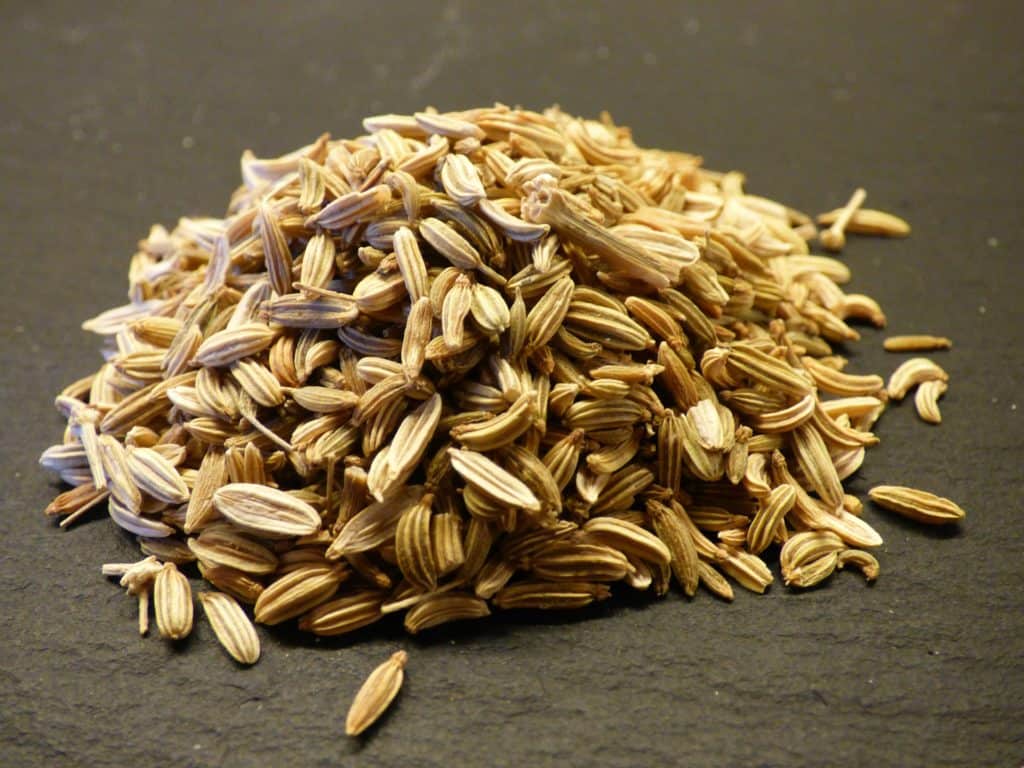
Fennel seeds are warming, aromatic, and slightly sweet. This herb promotes healthy digestion, which directly impacts the health of the immune system. As an antispasmodic, fennel is also useful for tight, spasmodic coughs.
You can use the seeds, bulb, stalk, or fronds as food and medicine. The seeds are often used to make tea and have a stronger aroma.
Ways to enjoy fennel:
- Fennel works well paired with all types of squash, apples, and sweet potatoes. Try out this roasted fennel and butternut squash recipe.
- Pair fennel with chamomile, mint, or ginger for a post-meal digestive tea
- Chew on a few fennel seeds to stimulate digestion and freshen your breath after a meal
What herbs and spices do you commonly use in the kitchen? Do you have any other recipes or ways you use the herbs I wrote about? I’d love to hear about them! Feel free to share in the comments below.
Photo in featured image courtesy of monicore.
Disclaimer: The above information is not intended to be medical advice. Please seek medical attention from a healthcare practitioner if you are experiencing signs of illness. Note that the above information is not intended to be a substitute for medical care nor does it infer that these herbs treat, cure, or prevent any disease.





